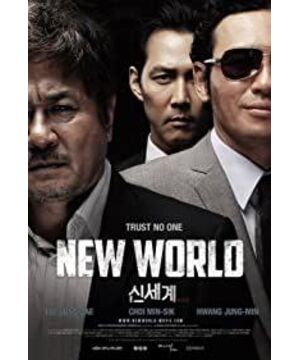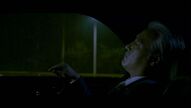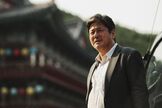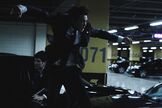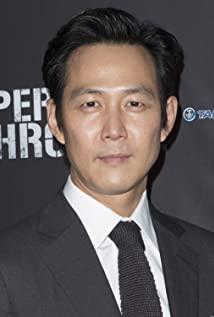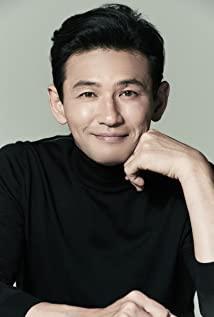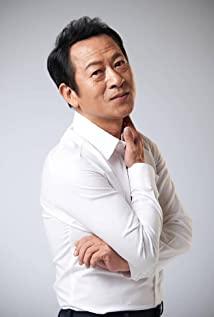It is very distinctive in environmental framing and modeling, making full use of the extension and symbolic meaning of environmental scenes to create unique and meaningful images. At the same time, it has become an important element to describe the relationship between characters and the state of characters.
First of all, in the police station, the planning of the New World Project was carried out secretly in a dark room. As a righteous party, it is not an upright conspiracy, but an invisible conspiracy, which creates a sense of insecurity through unconventional light sources such as bottom light. .
Next, the dilapidated and messy illegal building is the place where the protagonist (undercover) and the police officer secretly meet. Here, the protagonist enters this extremely closed, dim, and crumbling dangerous building from a very bright outdoor space during the day. Dim low-key lighting, and dirty dark yellow-green, and the use of water without the slightest transparency intensifies this dirty texture, presenting an extremely dirty and dirty place.
In contrast, the dialogue between the undercover officer and the officer in "Infernal Affairs" is on a well-lit, open and transparent rooftop. If one can feel a touch of warmth in the private meeting between Tony Leung and Huang Qiusheng in "Infernal Affairs" (for example, the police officer remembers that Undercover gave him a watch on his birthday), the undercover in "New World" can only feel intrigue and outright pressure, and the police officer's gift to his wife is also thrown into the water by him (because he finds himself being watched).
Similarly, the paragraph inserted at the end of the film is also under the dark bridge when the protagonist first meets the police officer, thus leading the protagonist into the abyss.
The pier scene creates a cruel and painful image on the edge of the city through a dark, dark blue modeling language, and becomes an extrajudicial place where the corpses are abandoned in the film. At the same time, the pier has also become the key to the transformation of the protagonist's arc. Here, two undercover agents beside him were discovered and eventually killed and thrown away. They simulated the perspective of a sinking corpse in the deep seabed, and presented a sense of powerlessness and suffocation by shooting upwards. At the level of meaning, it also means the truth and the true identity of the protagonist (the police) and the truth sink into the bottom of the sea and never surface. This repression also stimulates the awakening of the characters and changes their own destiny.
Another control group can refer to the scene when the protagonist and his friend Ding Qing are together. In the scene where Ding Qing invites the protagonist to dinner, the warm and bright sunlight illuminates the entire restaurant from the rear, through the short focal length and large depth of field. The whole scene is presented transparent and clear, giving the impression that there is no danger hidden behind. At the same time, it is necessary to realize that the sense of security brought by this light is actually relative to the previous scene.
In the previous scene, the protagonist blocked Ding Qing from the car that suddenly appeared from the shadow behind him in the underground garage. The camera blurs the background into a dark and chaotic shadow through a shallow depth of field, and occupies a large area of the screen, making people feel that danger is lurking, and then the car behind Ding Qing honks and flashes, making Ding Qing and the audience. All were frightened. Therefore, in the restaurant we feel absolutely safe and warm under the warm light. Ding Qing pays tribute to the protagonist by toasting here, which means that this sense of security is due to the protagonist.
Similarly, in the insert shot at the end of the film, the young Ding Qing and the protagonist are carrying out a task that is actually difficult and dangerous, but abnormally, the tone processing here is very bright, just as the two are going through a scene After a tough fight, I felt full of joy, and this atmosphere revealed the intimacy and state of the two.
In addition, Li Zhongjiu's mansion in the construction building, on the one hand, the sofas and wine cabinets are extremely luxurious, and the material desire is extremely inflated, on the other hand, it is extremely cold and simple, becoming an extreme "industrial style", with a strong contrast between black and white. There is no middle ground, it all shows that Li Zhongjiu is ruthless and has lost his due humanity. The door and windowless mansion foreshadowed that he was in danger, and eventually caused him to fall to his death.
View more about New World reviews


